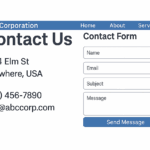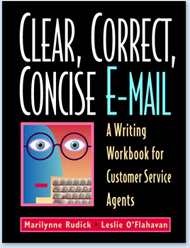These are difficult times, and our anxious customers need us more than ever. Some of them need help with a simple task, like “How do I add a new driver to my auto insurance policy?” Others need help solving a problem: “Why was I charged twice for inflight WiFi?”
All of them need our empathy. They need us to infuse our emails, chats, and social media responses with words that demonstrate we understand what they are feeling, we see things from their point of view, and we care.
Empathy isn’t easy. Some frontline customer service agents resist showing empathy. They think it’s optional or even risky because it implies they agree with the customer’s complaint. And even the most empathy-willing agents will struggle to show empathy when they’re overburdened, like they are now. So, to make empathizing easier, I’ve pulled together this list of 20 ways to empathize with stressed out customers. Please share these empathy statements with your team.
10 empathy statements to copy and paste
- I would be upset too.
- I realize how complicated it is to …
- I can imagine how frustrating that would be.
- That would be disappointing, especially when [paraphrase the customer’s perspective or efforts] …
- We want to understand what happened just as much as you do.
- I can see why that made you angry.
- This situation is unacceptable to us, too.
- If I were in your situation, I would feel exactly the same way you do.
- As a [insert parent, traveler, baseball fan, hay fever sufferer, etc.] myself, I understand why you contacted us today!
- If I were in your situation, I would be asking the same questions you are.
Four indirect empathy statements to use when you can’t fully agree with the customer’s perspective
Sometimes it’s difficult to empathize because the customer’s emotions are waaaay over the top or their complaint is just plain wrong. In these situations, you may want to offer indirect empathy that focuses on the customer’s behavior, such as following up, instead of the accuracy of their complaint.
- I can understand why you have followed up on this issue.
- I do realize that the [insert task name] process can be time-consuming.
- It certainly makes sense that you contacted me again to ask about this.
- I’m so glad you let us know about this.
Five short-and-sweet empathy statements to use in social media
- Oh no!
- That’s not right!
- That’s not what we like to hear!
- We’ve let you down, and we never want to do that.
- Yikes! That’s not how we want our customers to feel.
One strategy for writing with empathy
- Reuse the customer’s own words. If a customer complains that the adapter video cable they bought from your company was flimsy, use the word flimsy in your response. You’ll demonstrate that you’ve read the complaint carefully and your reuse of the customer’s words shows empathy for their perspective.
While sincere empathy comes from the heart, practical expressions of empathy in customer service situations can come right from this article. To make their jobs easier, please share this list with the customer service heroes on your team, and let your frontline agents know they can email me directly if they’d like my help with some more empathy statements to use every day.
— — — — —
Photo by Tim Mossholder on Unsplash








This is really helpful! Thank you for sharing.
Very helpful, practical advise! Thanks, Leslie.
Thanks so much, Jeff. Glad you liked it!
Thanks for your comment, Laura! I’m glad you found this article useful. Sending good wishes to you and yours 🙂
This is great! Thanks Leslie. Planning Center Support loves and misses you!
Hi, Raquel – Thanks so much for your kind comment. I love and miss Planning Center Support, too! Fingers crossed we will see each other in person in November. Be well and stay in touch!
Great tips! I love how we have empathy statements for different scenarios.
Great article and extremely helpfull for our community.
Great Article, and extremely helpfull for our community.
Thanks for your kind comment, Ricardo! I’m so pleased you found this article helpful.
Extremely helpfull, Thank You!!!
Thanks so much, Rose! I’m glad you liked this article.
Thank you for this
been blindsided with something
been blindsided with something preventable.
good info.
Thanks for your comments, William. I am glad you found this article useful.